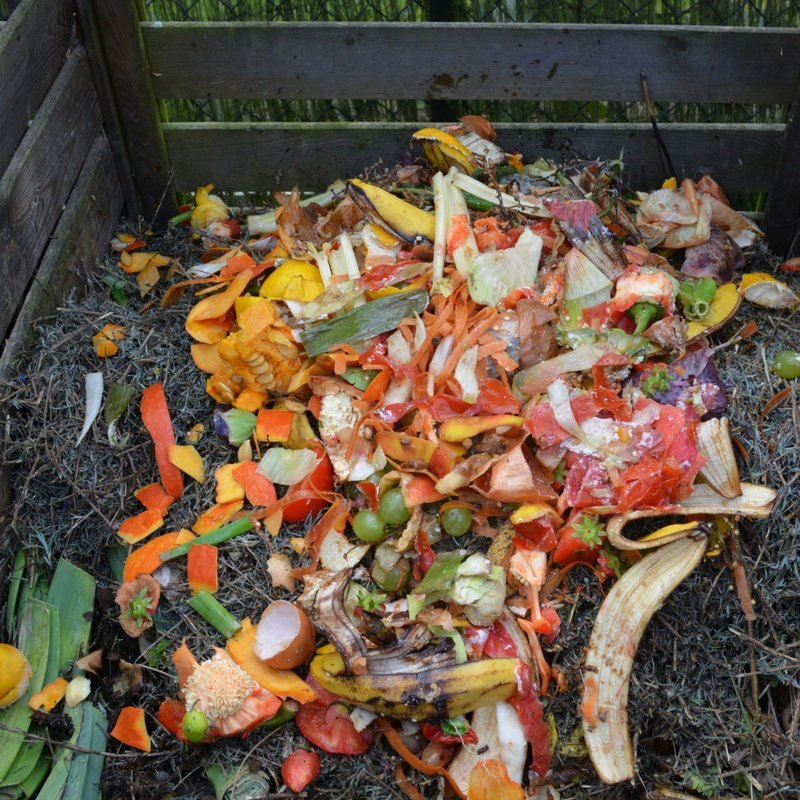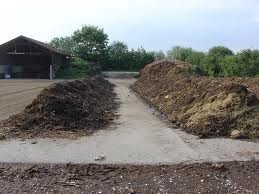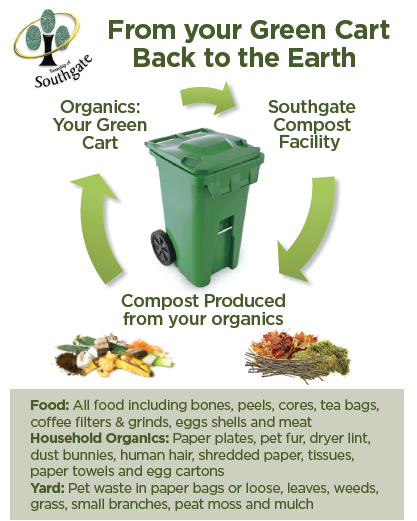Residential Composting in Southgate, ON

Composting is a valuable part of any municipal solid waste program because it diverts materials from landfills and incinerators. In Canada, over 60% of households participated in some type of composting program in 2011. In this article, we share what one community in Ontario is doing to grow its residential composting program and how it contributes to its diversion goals.
With 2,300+ households, the Township of Southgate in Ontario is a small rural municipality that has implemented an effective residential composting program. Tracey Dupuis in the Public Works Department works closely with the community to increase organic collection and composting with education and outreach programs.
Southgate’s Composting Program
Southgate complies with Ministry of Environment and Climate Change (MOECC) standards to ensure they are producing the highest quality compost. After the residential green bins with organics are collected from Southgate households on a weekly basis, they are delivered to one of their transfer stations. From there, operators or transfer station attendants mix the collected organics into the currently collected compost windrow on an outdoor pad using the windrow method. There are three piles–a working pile, a currently collected pile, and a screened pile ready for residents’ use.

The windrow composting method is used in Southgate, ON.
Windrow composting is when organics are piled into long rows to manage large volumes of compost, with the working pile being turned over weekly to ensure it’s aerated. The Township also has a data logger, which takes the daily temperatures. It is also required by the MOECC, with the working pile having temperatures of 55 to 70 degrees Celsius. Every six months, a sample of the finished compost product is sent to a lab for testing to ensure it meets the MOECC quality standards. Southgate’s lab results show that its compost is highly mature with no limitations for usage for its residents.
Classroom Visits and Fun Activities Are Key
For local schools, Mrs. Dupuis uses classroom visits to educate school children on the importance of composting and to introduce concepts such as contamination in the compost including plastic bags. This information is reinforced with fun activities such as “Organics Origami“, where children can work with their parents to make a liner for their kitchen organics container using newspaper. Southgate also provides their schools with the option of creating a garden by having a truckload of compost delivered directly to the school for seed planting.
Community Outreach and Handouts Create Awareness
For residents, the municipality provides handouts and community events are provided to help create awareness around the residential composting program. Southgate uses a helpful one-page Sorting Guide to help residents understand what goes into its garbage, recycling and composting containers. Mrs. Dupuis also has a handy Meal Planning sheet available to help residents plan ahead for grocery purchases to help reduce food waste.

The “Inside My Green Bin” handout helps Southgate residents quickly identify what can be composted.
Plus, residents have an opportunity to collect 240 litres of compost for free for use at home. Due to the high quality of compost in Southgate, it can be used as a top dressing for gardens or can be mixed with potted plants.
The Results
Over the last few years, Southgate’s composting program has grown as more residents become aware of the benefits of composting. The municipality places composting into two categories on its Annual Waste Volumes and Diversion Report–compost volumes and clean wood (which is chipped and added to the compost). In 2017, the combined compost volume and clean wood was 861.25 annual metric tonnes. This means that 22.24% of waste was diverted as part of its residential composting program.